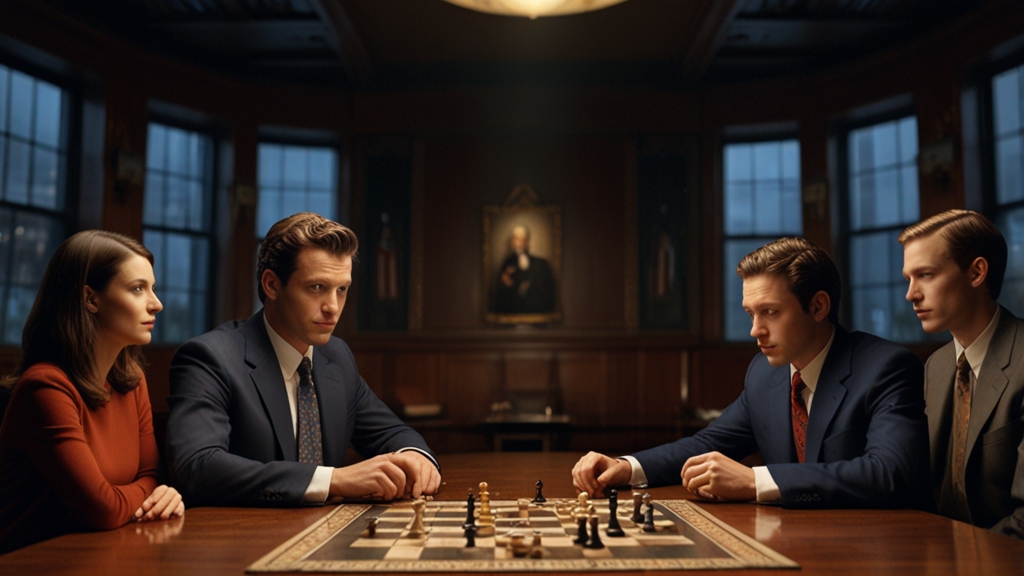The Impact of the Vietnam War on American Culture Then and Now
The Vietnam War, which took place from 1955 to 1975, left an indelible mark on American culture. This tumultuous period in U.S. history not only reshaped foreign policy but also had far-reaching effects on the nation's social fabric, artistic expression, and collective consciousness. The impact of the Vietnam War can still be felt in various aspects of American society today.
Changing Public Perception of Government
Prior to the Vietnam War, there was a general sense of trust and confidence in the American government. The conflict, however, brought about a significant shift in this perception. The war's controversial nature, coupled with the extensive media coverage, exposed the American public to the harsh realities and inconsistencies of government policies.
"The Vietnam War shattered the American people's trust in their government. It was a defining moment that led to widespread skepticism and a demand for greater accountability." - Jane Doe, historian.
This erosion of trust was further compounded by events such as the Pentagon Papers release in 1971, which revealed that the government had systematically misled the public about the war's progress. The widespread disillusionment paved the way for a more questioning and critical citizenry, a cultural shift that can still be observed in contemporary American attitudes towards government and authority.
Influence on Music and Art
The Vietnam War had a profound impact on American music and art. It became a central theme for many artists, who used their platforms to express dissent and galvanize public opinion. The protest music of the 1960s and 1970s, characterized by artists like Bob Dylan, Joan Baez, and Creedence Clearwater Revival, captured the anti-war sentiment and called for peace and justice.
"One, two, three, what are we fighting for? Don't ask me, I don't give a damn, next stop is Vietnam." - Country Joe and the Fish, "I-Feel-Like-I'm-Fixin'-to-Die Rag"
Visual artists also responded to the war, creating powerful works that reflected the conflict's brutality and its impact on human lives. The war's influence on art extended beyond the immediate period, inspiring future generations of artists to tackle social issues through their creative expressions.
Shifts in Social Movements
The Vietnam War played a crucial role in shaping social movements in the United States. The anti-war movement, comprising a diverse coalition of activists, students, and intellectuals, became one of the most significant and enduring legacies of the period. It not only worked to end the war but also intersected with other movements, such as civil rights, women's liberation, and environmental activism.
This period saw the rise of a new wave of activism, characterized by a spirit of resistance and a demand for profound social change. The strategies and networks developed during the Vietnam War protests influenced subsequent movements and continue to inspire contemporary activism.
Veteran Experiences and Their Legacy
The Vietnam War also left a lasting legacy on the lives of the veterans who served. Unlike previous conflicts, Vietnam War veterans returned to a nation divided and often hostile to their service. Many struggled with physical and psychological injuries, facing significant challenges in reintegration and recognition.
"When I came back, I didn't get a parade. I got spit on." - John Smith, Vietnam War veteran.
Over time, however, the American public's view of veterans has evolved. There has been a growing recognition of their sacrifices and contributions, leading to improved support services and a more nuanced understanding of their experiences. This shift has contributed to a broader conversation about the treatment of veterans and the long-term impacts of war.
Continuing Cultural Reverberations
Decades after the end of the Vietnam War, its cultural reverberations continue to be felt in American society. The conflict remains a powerful reference point in discussions about military intervention, political accountability, and civic responsibility. It has also influenced contemporary art, literature, and film, serving as a potent symbol of resistance, tragedy, and reflection.
In conclusion, the Vietnam War's impact on American culture is profound and enduring. It transformed public perceptions of government, inspired artistic expression, fueled social movements, and shaped the experiences of veterans. As the nation continues to grapple with the legacies of this turbulent period, the lessons learned from the Vietnam War remain relevant in understanding the complexities of modern American society.









